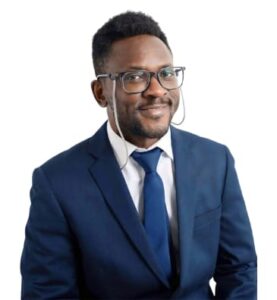

When the world went into lockdown, Dr. Kennedy Obohwemu was alone in a new country, navigating a PhD, financial pressure, and overwhelming isolation.
It was his first year in the United Kingdom after moving from Nigeria—no family, no friends, no support system. Just silence, stress, and survival.
 But from that silence came something extraordinary.
But from that silence came something extraordinary.
This month, Dr. Obohwemu published the Self-Comforting Attitude Theory (SCAT) and Self-Comforting Attitude Scale (SCAS)—a world-first framework that helps us understand how we feel about the ways we comfort ourselves.
The research, published in Mental Health & Prevention by Elsevier, offers insight into why some people embrace emotional self-care, while others resist it—even when they need it most.
The SCAT and SCAS build on Dr. Obohwemu’s earlier theory and measurement tool—the Self-Comforting and Coping Theory (SCCT) and Scale (SCCS)—which focused on what people do to stay grounded during emotional distress, like journaling, deep breathing, or self-reassurance.
Together, these tools form the Self-Comforting Framework, the first comprehensive model in the world that looks at both behaviour and attitude in emotional resilience.
Speaking on his groundbreaking Research to our Reporter, Dr Obohwemu, said: “It’s not just about how you cope—it’s about whether you believe you’re allowed to.
“We carry emotional rules shaped by culture, upbringing, and past trauma. SCAT is about identifying those silent beliefs.”
His story is as inspiring as his science. What started in a tiny flat during lockdown—raw moments of talking himself through tears, convincing himself to keep going—has become a framework that’s now helping people globally feel seen, validated, and empowered.
Wellness experts are calling it a game-changer. Therapists say it offers a nuanced way to design more inclusive mental health support. And for individuals, it’s a powerful reminder that self-care is not selfish—it’s science-backed survival.
From medical doctor to resilience researcher, Dr. Kennedy Obohwemu is proof that strength doesn’t always roar. Sometimes, it whispers: You’ve got this—and that whisper can change the world.
